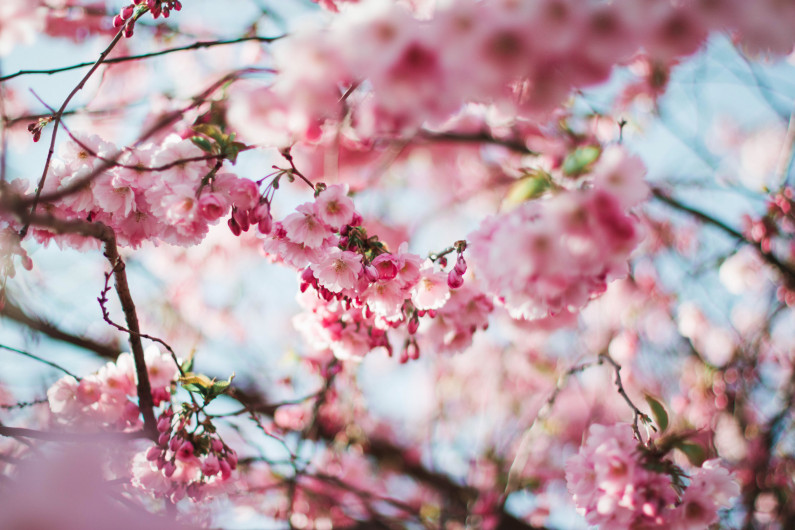Top Tips for Relieving Hay Fever

IT’S THAT TIME OF THE YEAR AGAIN - HELLO HAY FEVER SEASON
The Summer season is so close we can almost taste it! Ice cream cones down at the waterfront and the hot sun on our backs, pure bliss. After the cold snap begins to lift, New Zealand will be raring to go into Summer with fresh rich grass and more blooming plants. With all these beautiful seasonal changes in mind, we have put together just for you an all-important information pack about Seasonal Conjunctivitis (more typically known as hay fever) and how to stop it from holding you back this season, to let you go out and enjoy the beautiful sunshine in style….without rubbing your eyes into a hot mess.
Do you get allergic conjunctivitis? Here are the main symptoms to keep a lookout for:
- Itchy eyes
- Watery eyes
- Puffy/red inflamed eyelids
- People often can have other allergic symptoms to go with above such as a blocked or runny nose, itchy throat and the case of the sneezes.
- A new intolerance to your contact lenses and/or make up
Now how long can all these eye symptoms last? It can differ from person to person and also what stage of the year we are in, below is a little breakdown:
- Seasonal conjunctivitis - at typical times of the year when the pollen count is high.
- Continuous conjunctivitis – occurs anytime with allergens such as dust mite or pets.
- Sporadic conjunctivitis – due to direct contact with an allergen such as cosmetics.
The best first-line treatment, as recommended by award winning OCULA Optometrists:
For the most effective first-line treatment, it's important to do all of these together:
-
Cold Compress - This is perhaps the most underrated itchy eye treatment - when done regularly, it can work wonders. We prefer to use 'The Eye Dr Plus Hot & Cold'* pack because it stays cool for longer than a cold wet face cloth and provides soothing relief of symptoms from hay fever.
- Cool Eye Rinse - Rinsing eyes with cool water and using preservative-free lubricant eye drops to flush out any lingering allergens. We recommend to use Systane Hydration UD Unit Dose*, this product is always good to have on hand and safe for the whole family for a number of causes of sore eyes (swimming pool chlorine, late nights or long days in front of the screen etc.).
- Eye Drops - Zaditen Unit Dose* we love this because it is an 'over the counter' product and doesn't require a prescription. It's an antihistamine eye drop to get rid of the itch, as well as a preventer to reduce the long-term reaction. You only need to use twice a day, which is great for kids who don't like eye drops, and contact lens wearers who can use before and after wearing contact lenses.
*These products are available from our OCULA stores.
Top tips recommended by award winning OCULA Optometrists:
- Tip 1 - Use preservative free eye drops (called unit dose - see above) - some people who are sensitive to allergies can be allergic/sensitive to preservatives, and they don't expire as quickly (nothing worse to cause an infection than an opened old bottle of eye drops rolling around in the bottom of a handbag!)
- Tip 2 - Contact lens wears can consider going to daily disposable contact lenses during allergy season - pollen stuck to contact lenses will be thrown away and won't be reintroduced the next day.
- Tip 3 - Pop your lubricant eye drops in the fridge for a relieving, cooling effect.
- Tip 4 - Introduce a zinc/vitamin C combination supplement into your diet, this can help to calm down the overactive immune system, and can be helpful in providing no-medicated allergy relief. But, it's important to check first with your doctor to ensure any supplements don't interact with your medications / health conditions.

It is also good to remember some daily routines to help ease the symptoms before spring really kicks in:
- Try not to rub or touch your eyes. Use a cold compress instead.
- Before touching your eyes for any reason, wash your hands carefully.
- Use your own flannel, towels, pillowcases and bed linen (and change these regularly).
- Wear wrap-around sunglasses to prevent the pollen from getting to your eyes as easily.
- Showering after being outdoors and change of clothes, this will help keep the pollen at bay by removing it from your body and clothes.
With all these amazing tips and tricks we are handing out this Summer we hope you will be ready to tackle the garden parties, BBQ's and camping trips with confidence!
If you are already aware you suffer from bad eyes over the seasonal changes of the year and still struggle to find the best course of action for you, our Optometrists can prescribe stronger eye medications, if needed. Our Optometrists can also offer in-clinic treatments to help combat eye allergies and associated sore eyes. Come on in and say hello to our welcoming staff in Queenstown, Wanaka or Christchurch and we would be happy to help you find the best treatment, as waking up with happy eyes is our number one priority.
OCULA Team
